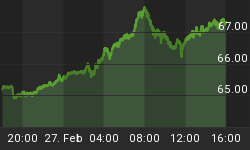On 16 August President Obama announced that the U.S. Departments of Agriculture, Energy and Navy will invest up to $510 million by 2014 in partnership with the private sector to produce advanced "drop-in" aviation and maritime biofuels for military and commercial use. This builds on a directive Obama issued five months ago as part of his "Blueprint for A Secure Energy Future," his administration's policy for reducing U.S. dependence on foreign oil imports, which now cost more than $300 billion.
The plan envisages the three federal departments to invest a total of up to $510 million, which will require substantial cost sharing from private industry, with projected matching funds of least one to one.
President Obama declared, "Biofuels are an important part of reducing America's dependence on foreign oil and creating jobs here at home. But supporting biofuels cannot be the role of government alone. That's why we're partnering with the private sector to speed development of next-generation biofuels that will help us continue to take steps towards energy independence and strengthen communities across our country."
Secretary of Agriculture Vilsack said, "Our goal is to create and stabilize an advanced biofuels industry. This is not a fly by night effort - it's a commitment to a real energy future. The president has asked us to make the US more competitive, and to give us real diversification in our energy choices." Secretary of the Navy Mabus added, "We simply buy too much fuel from out of the country. The supply shocks, the price shocks, it's simply unacceptable to the military. For every dollar increase in the cost of a barrel of oil, it costs the Navy $30 million."
The third federal department involved in the initiative, Secretary of Energy Steven Chu noted, "These pioneer plants will demonstrate advanced technologies to produce infrastructure-compatible, drop-in renewable fuels from America's abundant biomass resources. It will support development of a new, rural-focused industry that will replace imported crude oil with secure, renewable fuels made here in the U.S."
While it remains to be seen how the joint investments between the U.S. government and private sector will work in practice, the announcement nevertheless represents an unprecedented commitment by several federal departments to stimulate the production of renewable biofuel energy, which is a godsend for many start-up companies which have up to now found it difficult to locate capital to ramp up production.
There are many reasons why production of drop-in biofuels in the United States has been limited up to now. Two of the most significant roadblocks have been a dominant influence of the U.S. bioethanol industry and lobby, which until now has crowded out consideration of other options, as it currently has a hammerlock on issues of importance to farmers, including subsidies and federal crop insurance.
A second inhibiting factor is the sheer diversity of feedstocks, which range all the way from timber milling byproducts to algae. No single biofuel feedstock has as yet emerged as the clear initial winner, although it appears increasingly evident that camelina may soon come so.
And finally, last but certainly not least, the small amounts produced thus far of drop-in biofuels, the majority of which have gone to both civilian airlines and the Department of Defense for evaluation and testing have been labeled "designer" fuels, as their prices are multiples per gallon higher than traditional fossil fuel, which depending on the feedstock, have ranged between $65 and $100 per gallon. Supporters of biofuels argue that the high prices up to now are a factor of limited production rooms and that mass production will lower unit costs, but the fact of the matter remains that the high prices have been a significant impediment to developing full-scale commercial production of drop-in biofuels up to now.
The Department of Defense's Defense Energy Support Center (DESC) is the sole purchaser of fuel for the U.S. military and federal law requires it to pay a fixed price for fuel. In its latest publication for FY 2011, the DESC pays $3.03-$3.46 per gallon of JP-8, the military equivalent of a Jet A-1, civil aviation fuel. That said, the need is there, as JP-8 is the most widely used fuel in the U.S. military, accounting for about 65 percent of. DoD's fuel needs, which uses about 4.6 billion gallons (146 million barrels) of fuel each year and given the need to begin production of sufficient volumes of biofuel, it would seem that the DESC price limitations are unlikely to be ironclad.
Wall Street's big money boys, the Carlyle Group and Goldman Sachs, have already begun discreetly investing in biofuel production in the U.S., but given the size of the recent government's pronouncement, there is still plenty of largesse to go around. Smart investors will be watching developments closely.
By. John C.K. Daly of OilPrice.com















